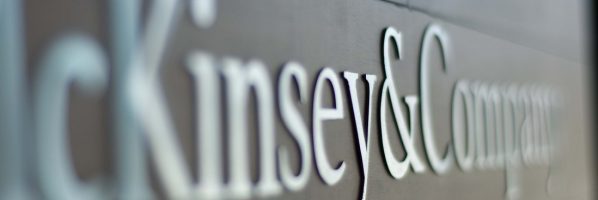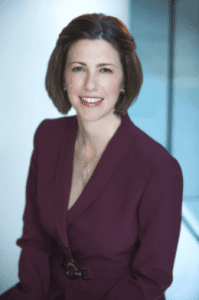Pick Your City: Should You Get an MBA in Charlotte or Atlanta?

Where should you go to school in the Southeastern U.S.? There are many different options, so it depends on what you’re looking for. To make the best choice, you need to compare the cost of living of each city, the MBA programs available, the job opportunities, and the benefits of each area.
To help you out, our “Pick Your City” series breaks down two similar locations to help you make the best decision for you. In this article, we’re comparing Charlotte, NC and Atlanta, GA to see what each offers. Continue reading…
The Big Picture: The 5 Most Important MBA Numbers of 2018

Each year there’s a ton of new information that comes out about MBA programs. From new rankings to the latest GMAC news, there are a thousand little tidbits that can overwhelm applicants, students, and alumni. We’ve collected the most important MBA numbers of 2018.
To pare down the news into the information you need to know, we’ve taken a look at the big picture of the MBA for 2018 and outlined the five most important pieces of data you need to know. We’re talking about everything from the decline and U.S. MBA applications to the increase in female enrollment, the higher salaries and GMAT scores, as well as the increase in interest in technology. Continue reading…
Forbes, Statista Analyze The Best U.S. Employers for Women

Forbes, in partnership with German data company Statista, surveyed over 40,000 U.S. employees (including 25,000 women) that worked for companies that had at least 1,000 total employees in an effort to find which companies were the best US employers for women. While several big-name companies earned high marks, one particular Iowa-based company managed to stand out among the competition.
The first set of criteria Forbes and Statista analyzed to calculate its best US employers for women ranking centered around factors such as working conditions, diversity, and “how likely they’d be to recommend their employer to others.” When accounting for the men in the survey, in contrast to the women that were asked the same set of questions, scores were adjusted if the differences if answers became apparent. For example, Statista would adjust scores if men in the survey said a company had a lot of diversity, but women said that the same company did not.
The following set of criteria used in the survey, specifically for the female respondents, focused on “on factors such as parental leave, discrimination, and pay equity,” as well as nominated companies outside of the one they happen to work for. “The final list ranks the 300 employers that both received the most recommendations and boast the most gender diverse boards and executive ranks,” Forbes says.

Des Moines, Iowa company Principal Financial Group was the best U.S. company for women, according to Statista data.
Principal Financial Group, based out of Des Moines, Iowa, earned the highest honors for the 2018 ranking, with an official score of 91.4. The company, ranked 210th overall on the Fortune 500 list, employs 9,978 U.S. workers, nearly 60 percent of which are women. Speaking with Forbes, Kerry Gumm, the Principal Capital Director of Human Resources Strategy, says, “It really does start with the culture of the organization.”
“You can have a holistic life if you’re part of this organization,” she adds. “I’ve not felt the need to compromise in any way.”
Principal Financial Group earned high recommendations because of its benefits, which include “flexible work schedules, prenatal care programs, and an onsite childcare center.” The company also manages an annual review of all of its pay practices to better combat any potential biases, alongside an anonymous call center to help discuss compensation disputes. Not to be outdone, the company also implements rigorous standards in helping its own employees earn promotions, of which include “three women’s networks for those in leadership, technology, and sales roles.” In contrast to many of the companies listed in the aforementioned Fortune 500 listing, 42 percent of executive roles and 45 percent of the boards seats are held by women Principal Capital Group.
The University of Pennsylvania Health System, more commonly referred to as Penn Medicine, earned the number two spot on the ranking. The organization has over 35,000 U.S. employees; the third highest among the top ten ranked companies. With a significantly larger employee base than Principal Financial, Penn Medicine also has one of the largest percentages of female employees in the country at 77 percent. This also includes 55 percent women in the organization’s executive roles, as well as five out of its seven CEOs.
Card manufacturer Hallmark, based in Kansas City, Missouri, rounded out the top three. The company sports the smallest employee base out of any company in the top 10, with 2,500 U.S. employees. However, Hallmark featured an even larger portion of U.S. female employees than Penn Medicine, with a figure of 83 percent overall. About 70 percent of the Hallmark board is also held by women.
Several of the nation’s most prominent universities also managed to land in the top 50 of the new ranking, the highest of which was Harvard University at 9th overall. New York University, UVA, Stanford, and Emory University also earned high honors in the 2018 best US employers for women ranking.
2018 Best US Employers for Women
| Ranking | Company | # of U.S. Employees |
|---|---|---|
| 1 | Principal Financial Group | 9,978 |
| 2 | Penn Medicine | 35,273 |
| 3 | Hallmark | 2,500 |
| 4 | BayCare | 25,600 |
| 5 | Oregon Health & Science University | 15,642 |
| 6 | Keller Williams Realty | 154,000 |
| 7 | Boston Children's Hospital | 5,001 |
| 8 | Providence Health & Services | 82,000 |
| 9 | Harvard University | 18,724 |
| 10 | Gwinnett County Public Schools | 23,300 |
Click here to see the 2018 entire ranking.
Emory Goizueta Announces New MBA Deadlines

Deadlines for the One and Two-Year MBA programs at the Emory University Goizueta Business School have been officially announced for the 2018-19 academic year, which are as follows:
Round 1
Application Deadline: October 5, 2018
Notification Date: November 30, 2018
Deposit Due: December 21, 2018
Round 2
Application Deadline: November 9, 2018
Notification Date: January 25, 2019
Deposit Due: February 22, 2019 (International & One-Year) / April 19, 2018 (Domestic)
Round 3
Application Deadline: January 4, 2019
Notification Date: March 8, 2019 (Domestic) / March 15, 2018 (International)
Deposit Due: April 9, 2019 (One-Year) / April 19, 2018 (Two-Year)
Round 4
Application Deadline: March 8, 2019
Notification Date: Rolling (One-Year) / May 3, 2019 (Two-Year)
Deposit Due: Upon Notification (One-Year) / May 15, 2019 (Two-Year)
The Best Business Schools for Landing Top Consulting Jobs

Clear Admit recently explored which business schools help prepare MBAs the most for a career in consulting, which you can read below.
With starting salaries in the $140,000 to $150,000 range and a customary $25,000 signing bonus on top of that, it’s no wonder so many business school students target the prestige consulting firms known as the “MBB”—McKinsey & Company, Boston Consulting Group (BCG), and Bain & Company—as their post-MBA landing pads. That $170,000+ annual compensation package can quickly cut any MBA loan debt you may have taken on down to size.
Indeed, management consulting has been one of the most coveted career paths for fresh MBA grads for ages. And though the technology industry has in recent years been stealing some grads from the consulting industry’s traditional slice of the pie, the most recent MBA employment reports reveal that consulting is already making a comeback against tech at certain schools.
The opportunity to work with a range of clients comprised of many of the world’s most celebrated businesses across industries—tech included—is part of the appeal of consulting. In many ways, a top consulting gig allows MBA grads to continue their management education while getting paid for it—and further honing their skills and expertise by helping solve a wide variety of business challenges. And, not for nothing, breaking into the MBB is a highly competitive pursuit—one that almost assures that your colleagues will be smart, driven people you’ll get a lot out of working with.
Finally, where the top consulting firms are choosing to find their talent reflects on the quality of the education those schools’ students are getting. In many ways, the hiring practices of the MBB can serve as a gold star standard of sorts for MBA programs.
Elite Firms Hire Grads from Elite Business Schools
The crème de la crème of leading business school talent has headed toward the top consulting firms for decades—and performed well there—creating a virtuous circle of sorts in which the firms’ appetite for such talent only grows. And while this piece focuses on MBB, we should note that a host of other consulting firms—Deloitte, A.T. Kearney, Accenture, Strategy&, and Oliver Wyman among others—are also highly prized post-MBA destinations.
If you are looking to see which business schools send the greatest percentage of their graduates into consulting overall, don’t miss our September 2017 analysis of leading consulting industry feeder schools. Which schools top the list? And what stands out about how these schools successfully train students for careers in consulting?
Looking at Class of 2016 graduates, the University of Virginia’s Darden School led the pack, with 38 percent of its graduates heading into consulting. Columbia Business School was next, sending 35 percent, followed closely by Northwestern University’s Kellogg School of Management, which sent 33 percent.
The 2017 employment reports, which have been released since our analysis last fall, show some shifts year over year. Darden tied with Emory’s Goizueta School of Business in terms of the percentage of Class of 2017 grads who headed into consulting, with each school sending 34 percent. Close on their heels were Columbia, Duke’s Fuqua School of Business, Northwestern’s Kellogg School of Management, and Dartmouth’s Tuck School. All four sent 33 percent of their most recent graduating class off to consulting firms.
2 Non-U.S. Schools Lead All Others in Consulting-Bound ’17 MBA Grads
But year after year, one thing remains the same. INSEAD, with campuses in France, Singapore, and Abu Dhabi, beats all leading U.S. business schools when it comes to consulting. INSEAD’s 2016 MBA employment report, detailing employment outcomes for December 2015 and July 2016 INSEAD grads, shows that 46 percent went into consulting. And the most recent figures reveal that almost a full half—49 percent—of the 1,029 students who completed the INSEAD MBA program in December 2016 and July 2017 chose to either enter or return to the consulting field.

We should note here that INSEAD is distinct from many other schools in that it includes sponsored students who are returning to their pre-MBA employers among its hiring stats. This is in contrast to many U.S. schools, where the reported number and percentage of students hired by sector and employer corresponds to those students actively seeking employment, excluding sponsored students. Of the 49 percent of INSEAD 2017 grads headed into consulting, 33 percent were new hires and the remaining 16 percent were returnees.
London Business School (LBS) was the runner-up for the Class of 2017, sending 41 percent of grads into consulting. This was a 6 percentage-point gain over the school’s previous class of MBA graduates. Like INSEAD, LBS’s reported sector designation and top employer information includes sponsored students, only its employment report does not disclose what percentage of the class those returning students represent.
Beyond Business School: Emory Goizueta MBA Alumni Make Waves

One of the key quality indicators of an MBA program is its alumni. By looking at a school’s alumni, you can get a sense of the kinds of individuals who are drawn to the program, the impact the program can have on your future career, and the type of network you’ll have access to. At Emory University’s Goizueta Business School, this network includes Nick Harris, the director of digital operations and optimization for United Airlines in Chicago, and Elizabeth Halkos, the chief operating officer at Purchasing Power, an e-commerce company that provides voluntary benefits programs to employers to help their employees improve their financial well-being.
Nick Harris — ’08 EvMBA
Nick Harris’ job is all about enhancing the online shopping experience for United Airlines customers. To do this, he spends his days studying the behavior of visitors to United.com, from using their smartphones to shop to purchasing a service bundle. He then looks at what the competition is doing to ensure that United Airlines keeps on top of the latest trends.
Talking about his job, Harris told Goizueta: “An average week for me usually involves looking at a wealth of information or data and trying to understand what types of hypotheses we can generate based off how customers are behaving or transacting with our channels.”
For example, one of Harris’ main tasks is ensuring that consumers can purchase products on the United Airlines app as easily as they do on a webpage using their smartphones or computer. He also has to keep up with what the giants of customer service—Google, Apple, and Amazon—are doing.
Harris told Goizueta that when these companies offer a new service or do something really intelligent, they set a new standard that United Airlines has to keep up with. “You’re not just competing against others in your industry; you’re competing for mind space and time with all of the other devices and apps that are on customers’ phones,” he says.
However, this can be difficult for a large company that’s nearly 100 years old, but that challenge is part of what Harris enjoys. Harris regularly partners with other product owners to enhance the digital experience, collaborating across teams to assess metrics together to identify opportunities to improve the overall United Airlines customer experience.
“One of the things that we’ve been doing a lot is looking at web analytics data and marrying that with transactional data. As a company, we have loads of transactional data, which is one of the things that I absolutely love about being at a company this size,” explains Harris.

Nick Harris
His interest in working for a company like United Airlines was one of the reasons that Harris chose Emory for his MBA. Prior to attending Goizueta, he was employed at a small tech firm and considering launching an investment group with a few friends. The problem was that Harris didn’t have the right tool set and background to succeed. So, he began to look into the Goizueta Evening MBA program.
“I felt it was worth the investment to go back to school and take the time to grow in a structured learning environment, in order to build that tool set,” he says. “This way I could evaluate our opportunities and learn the science of business.”
But, in the end, it wasn’t just the classroom experience that impacted Harris, it was the relationships that he built. In particular, his relationship with Professor Patrick Noonan led him to the airline industry. “We were talking one day, and Noonan says, ‘If you really like this work and you’re interested in doing optimization, you should think about the airline industry, given all of the work they do from a space revenue management standpoint,” remembers Harris. And the rest was history.
Elizabeth Halkos – ’01 MBA
As the chief operating officer at Purchasing Power, Elizabeth Halkos has a good deal of leadership experience, which was recently recognized during the 14th annual Stevie Awards for Women in Business. Halkos was praised for raising the bar professionally and as a teacher and mentor for young women looking to launch their own ventures. This and her other accomplishments led her to be named a Silver Award Winner in the “Female Executive of the Year, Business Services: 11 to 2,500 Employees – Business Services” category.
Since 2002, the Stevie Awards have honored women executives, entrepreneurs, employees, and the companies they run globally. Each year, more than 170 professionals worldwide come together on five specialized juries to nominate the top women and organizations across more than 60 nations.

Elizabeth Halkos
After earning her MBA with a concentration in statistics and data analytics at Emory Goizueta in 2001, Halkos went on to work as a brand manager at Earthlink, Inc. and an account executive at Monster.com. From there, she served two years at the Inforte Corporation, where she consulted with such clients as Miller Brewing Company and Ocean Spray. Then, finally, she found her way to Purchasing Power in 2006.
Halkos started at Purchasing Power as the vice president of sales and marketing and quickly moved up the ranks. By 2010, she was promoted to chief marketing officer and then to chief revenue officer by 2014. In January of 2017, she was appointed to her current role of COO.
Halkos’s achievements at Purchasing Power include driving the top line revenue from $30M to more than $400M over a decade and helping the EBITDA (earnings before interest, taxes, depreciation, and amortization) grow from $5M to more than $40M. Most recently, she played an integral role in launching Purchasing Power’s 2017 rebranding campaign, which included new channel partnership strategies. This resulted in a 19 percent revenue and 80.5 percent adjusted EBITDA growth, compared to the same six months the previous year.
Halkos’s responsibilities at Purchasing Power include oversight of sales, account management, client services, customer experience, customer care, customer operations, business-to-business marketing, and public relations. She is also responsible for leading the broker and employer growth strategies for the company, which has helped Purchasing Power place on the “Inc. 5000 List of America’s Fastest-Growing Companies” for nine years in a row.
Outside of her job at Purchasing Power, Halkos is still very involved at Emory Goizueta. Since 2008, she has served as a board member, and previously served as president and vice president of the board. Recently, Halkos was also chosen as the recipient of Emory University’s “Annual Service Award” in recognition of her involvement in mentoring and supporting students at Goizueta.
To learn more about MBA alumni at Emory Goizueta, visit the school’s website.
